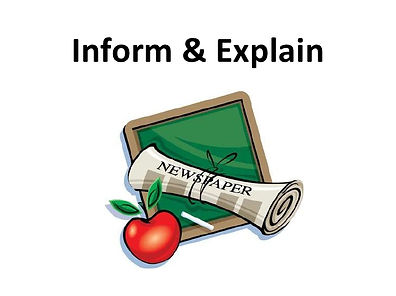
Essay: Diverse, Yet One

In this particular essay and many of my other essays, I included countless run-on sentences. I had so many thoughts I wanted to get down on paper that I just kept going without stopping. When one does not stop when writing and re-read after writing something down, it turns in to quite the mess.
The problem with this is that when someone else is reading my essay, the sentence might not make sense to them, thus making them have to re-read the sentence. In essays, we want our ideas to be clear and understood the first time. Run-on sentences also make the essay look and seem less professional than anyone would want their essay to look like. When in high school, we want to impress those who are reading our writing; run-on sentences do not do such impressing.
This picture suits my issue well, as I do write very quickly, not paying a lot of my attention to grammar. I tend to "run" really quickly, thus making countless run-on sentences throughout my papers.
As an example in my paper Diverse, Yet One, on page two, in the second paragraph, I changed a single sentence with too many ideas into two separate sentences that helped clarify each idea better. By doing this, I was able to explain both ideas I was presenting in a more clarified way.
While writing this essay about the Millennial generation, I constantly would switch from capitalizing the word "Millennial" to not capitalizing it. I needed to pay more attention to what I was doing, and why I was doing it (regarding capitalization).
As an upperclassman in high school, capitalization should already be an 'easy' thing. This is true because we were taught to capitalize in elementary school. I will admit though, that sometimes there are words that we all wonder about. The word 'Millennial' was this for me. The issue with not capitalizing it, and then capitalizing it, is that for one, I was not consistent. I would capitalize it in one paragraph, and then I would not in the following paragraph. Consistency is a key part in being professional in writing; even if I was wrong, at least I would show that I was confident in my mistake and not somewhere in the middle. Being able to fix our mistakes is also an important task, as we show that we know how to do so and that we want to do so.
Being able to know when to capitalize and when to not capitalize in special cases, is a grand achievement, as there are so many "special" cases. This picture, as well, shows that capitalization should be in our revision hierarchy so that we can look and be professional in our writing.
In my essay, in paragraph one, I capitalized "Millennials", and in the following paragraphs, I had "millennial" written. These I simply pressed a few keys to capitalize them all, making them consistent and correct.


On my second page, in the third paragraph, I started out my paragraph with a topic sentence that did not relate directly to my thesis, but instead to a topic outside my thesis. "Another attribute regarding our school's in our generation is that the schools try to make school "fun" for us and try to entertain us more than teach us." In this topic sentence, I am focused on what our schools are like within our generation. My paper's thesis is about the characteristics of our generation; not the schools themselves. This then does not lead back to my thesis, which is an issue in a well-written essay.
This picture relates to my issue because it shows a certain order of what a paragraph is supposed to look like. It all starts with a topic sentence that supports the rest of the paragraph's contents. Without a correct topic sentence that leads back to the thesis, one will have a "bunless burger", which any burger-lover, sort of despises. I corrected this by saying "Another attribute regarding our generation, regarding schools, is that the schools try to make school “fun” for us." All I did was move a few words around to fix the focus of my paragraph.
In my Introductory paragraph, I made a claim without supporting is or explaining thoroughly. The claim I made was this: "Generations all have their differences and their similarities, but one thing that is true of all of them is this: they are by nature, sinful." This claim was solely in there, but I did not support it, which leaves quite a dull taste when one reads it. When we inform our readers about something or make a claim, we need to explain what we mean and support it.
I fixed this by simply adding a few sentences following the claim, explaining and supporting it. Afterward, it looked a like this: "Generations all have their differences and their similarities, but one thing that is true of all of them, is this: they are by nature, sinful. Since by nature, all people are sinful, groups of people are also sinful; thus creating sinful generations. Generations are again, sinful by nature; but, that does not mean that they cannot accomplish things." By adding some explanation, I show that I am making a claim that I can support, thus creating an atmosphere that says 'she knows what she is doing as of right now.' Making claims with no support does not show professionalism nor good writing, which we want to show others.


On page two, paragraph two, I used a word in a sentence that did not fit the audience of the paper, nor is it really appropriate for much of any writing. It stated this: "On the other hand, questioning things that need not be questioned is a bit insane as it just seems a bit idiotic to ask 'why someone like myself must do my math homework.'" The word choice of 'insane' and 'idiotic' was far from the professional vocabulary that a professor would be looking for.
This was fixed with a simple vocabulary change: "it just seems a bit senseless to ask..." By changing the vocabulary, it made the sentence sound so much more professional, and actually look a bit more professional as well. If I were to use these same words in the essay that I turned into my professor, this would be seen as a foolish choice, as I know whom I am writing to. Professors I believe, are not looking for slang inside of essays, but instead, correct vocabulary that fits the subject and the audience.
Being able to choose our vocabulary well to suit our audience will help authors in the long run. This is because knowing one's audience allows one to write for that audience.
In my last paragraph, on the fifth page, my last sentence in my peer reviews was not a "big hit", as it did not make any connection to the essay, nor the title. It read this: "Our generation is quite diverse, yet one, at the same time." This sentence is not a very strong ending that a good essay needs to give a lasting impression to the readers.
I fixed this by adding a bit of depth to the statement, as well as adding more wording to it, to add more of an effect: "The Millennials may not be considered the “best” of the generations, but they have their own good traits that have been passed down from generation to generation. Being all of these attributes, and many more, our generation is quite diverse, yet one at the same time; through our differences, we fight for one another." This small addition helped the strength of the ending, thus giving my essay more of a chance of an impact inside a reader's mind.
Having a strong ending is important because as writers, we want our work to be remembered; we want it to teach the readers something they will remember. Not having a strong ending makes an essay part of the pile that just gets thrown in the back of someone's head. This does not help us in the long run, thus, we want to end strong.

![00001[1].jpg](https://static.wixstatic.com/media/c7c95d_825e4911ea9244d08726e1c690452fc6~mv2_d_2040_2640_s_2.jpg/v1/fill/w_495,h_636,al_c,q_80,usm_0.66_1.00_0.01,enc_avif,quality_auto/00001%5B1%5D.jpg)
![00001[1].jpg](https://static.wixstatic.com/media/c7c95d_ab67d99ab42440139a10b895ec96dd8c~mv2_d_2040_2640_s_2.jpg/v1/fill/w_504,h_640,al_c,q_80,usm_0.66_1.00_0.01,enc_avif,quality_auto/00001%5B1%5D.jpg)
![00001[1].jpg](https://static.wixstatic.com/media/c7c95d_e4e9b2f0dd824f718d2ace203af5cdc3~mv2_d_2040_2640_s_2.jpg/v1/fill/w_496,h_636,al_c,q_80,usm_0.66_1.00_0.01,enc_avif,quality_auto/00001%5B1%5D.jpg)
![00001[1].jpg](https://static.wixstatic.com/media/c7c95d_28678c75b63b4de68c41b3b20b4933a8~mv2_d_2040_2640_s_2.jpg/v1/fill/w_505,h_636,al_c,q_80,usm_0.66_1.00_0.01,enc_avif,quality_auto/00001%5B1%5D.jpg)
![00001[1].jpg](https://static.wixstatic.com/media/c7c95d_a1ad2bbfd1f44f56ba433953e7f7aafb~mv2_d_2040_2640_s_2.jpg/v1/fill/w_497,h_636,al_c,q_80,usm_0.66_1.00_0.01,enc_avif,quality_auto/00001%5B1%5D.jpg)

